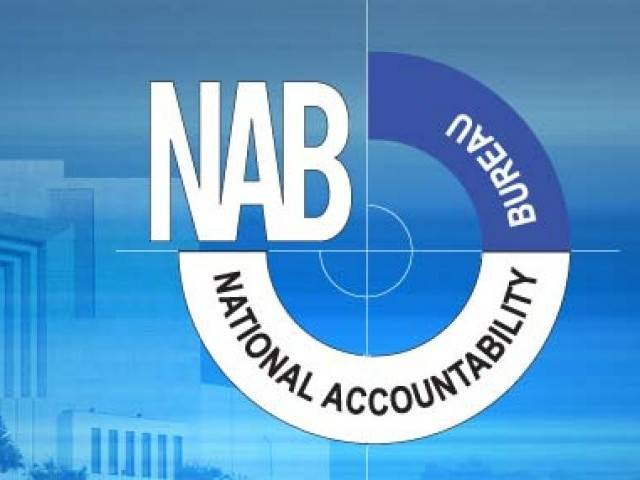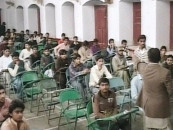Briefing sought on ‘denial of facilities’ in NAB custody
Senate panel summons home secretaries and IGs prisons of all provinces

Rasul Khan Mahsud faces charges of corruption in Karkey RPP case. PHOTO: EXPRESS/FILE
A meeting of the committee under the chairmanship of Senator Mustafa Khokhar will be held on October 18.
The most important agenda of the meeting is that home secretaries and IGs prisons have been told to brief the committee on the justification in law for denying facilities to under-trial prisoners in NAB custody.
Talking to The Express Tribune, Khokhar expressed his concerns over jail authorities “misbehaving with politicians”, who are being tried in NAB cases.
“They [the under-trial politicians] are not even allowed to hold meetings. We want to know if all this is being done according to the jail manuals,” he added.
The senator also spoke about the “maltreatment” of political prisoners, who belonged to Sindh, in jails in Punjab.
On the apex court’s directives, former president Asif Ali Zardari’s trial has been shifted from Sindh to Punjab.
The federal government has also decided to introduce an amendment to the NAB law under which the suspects facing charges of corruption exceeding Rs500 million would be kept in the ‘C class’ facility in jails.
As per the Prisoners Rules, the ‘A class’ prisoners are kept in separate barracks and rooms and can avail facilities at their own expense.
Currently, Pakistan Muslim League-Nawaz (PML-N) supreme leader and former prime minister Nawaz Sharif, his daughter Maryam Nawaz and nephews Hamza Shahbaz and Yousaf Abbas, former premier Shahid Khaqan Abbasi, former minister Miftah Ismail, Pakistan Peoples Party (PPP) Co-Chairman and former president Asif Ali Zardari, his sister Faryal Talpur, and several businessmen are in jail.
A senior lawyer believes that the proposed amendment will be in violation of the Federal Shariat Court (FSC) 2009 judgement, wherein it was ruled that the classification of prisoners into A, B and C class was not alien to Islam.
He also questioned as to whether or not amendment could be introduced to end the classification of prisoners, when jail was a provincial subject.
Legal experts believe that bail should be granted in white-collar crime cases at the stage of investigation because of two reasons: First, everyone is innocent until proven guilty. They referred to the example of former president Asif Ali Zardari who remained in jail for eight years without conviction. Secondly, in the absence of bail, the purpose of an accused person’s right to defence is seriously jeopardised. When a suspect is behind bars, he is unable to furnish his defence.
Lawyer Umer Gilani said the prevalent legal regime regarding pre-trial and during-trial detention is a vestige of our colonial, authoritarian past and the NAB law has made it even worse. “It cannot be honestly reconciled with the fundamental right of liberty,” he added.
The Senate committee has also asked human rights secretary about the state of media freedom in the country in the light of recent reports.
The chairman of the Pakistan Electronic Media Regulatory Authority will also brief the committee on the legality of censoring coverage of opposition leaders’ interviews.



















COMMENTS
Comments are moderated and generally will be posted if they are on-topic and not abusive.
For more information, please see our Comments FAQ